Table of Contents
- “The X-Files”: Unearthing the Unknown
- Mystery and Intrigue
- Complex Characters
- Legacy and Impact
- “Buffy the Vampire Slayer”: Empowerment Through Fantasy
- Strong Female Protagonist
- Metaphorical Storytelling
- Supporting Characters
- The 1990s witnessed a renaissance of genre television that extended beyond “The X-Files” and “Buffy.” Shows like “Star Trek
- Innovation and Diversity
- Fan Communities
The 1990s marked a remarkable era for science fiction and fantasy television, giving rise to a wave of innovative and captivating shows that have left an enduring impact on the genre. Among these gems, “The X-Files” and “Buffy the Vampire Slayer” stand out as iconic series that redefined storytelling and captured the imaginations of viewers worldwide. In this article, we’ll explore the enduring appeal and influence of these two groundbreaking 90’s genre television shows.
The 1990s were a time of immense creative exploration in the realm of television. It was a decade that dared to delve into the extraordinary, weaving intricate narratives and introducing audiences to worlds beyond imagination. Within this rich landscape, two exceptional series emerged, each leaving an indelible mark on the genre and reshaping the way we perceive storytelling in television.
1. “The X-Files”: Unraveling Mysteries Beyond the Norm
“The X-Files” was not just a television show; it was an invitation to explore the mysteries that lie at the intersection of science, the supernatural and human curiosity. The series masterfully blended elements of science fiction and horror, thrusting viewers into a world of government conspiracies, extraterrestrial encounters and unexplained phenomena.
Pioneering Paranormal Investigation: With Mulder and Scully, “The X-Files” brought to life an investigative duo that pushed the boundaries of conventional detective work. Their relentless pursuit of the truth, even in the face of the unexplainable, resonated with viewers and instilled a sense of wonder and curiosity.
Social Commentary Through the Unseen: Beneath its supernatural veneer, “The X-Files” served as a platform for thought-provoking social commentary. It explored themes of trust, the abuse of power, the unknown and the relentless quest for knowledge, all of which mirrored the uncertainties of the real world.
Fandom and Cultural Impact: The show’s passionate fan base, often referred to as “X-Philes,” showcased the depth of its impact. “The X-Files” not only spawned movies but also inspired countless other TV series and films that explored the paranormal and unexplained phenomena, solidifying its legacy in the genre.
2. “Buffy the Vampire Slayer”: Empowering Through the Supernatural
“Buffy the Vampire Slayer” was a revelation that turned the damsel-in-distress trope on its head. It introduced viewers to Buffy Summers, a fearless young woman chosen to battle the forces of darkness. In doing so, the series shattered gender norms, explored complex themes and delivered a heady mix of action, drama and humor.
A Feminist Icon: Buffy was not just a slayer of vampires; she was a symbol of female empowerment. She showed that strength, courage and resilience know no gender boundaries. Her journey from a reluctant hero to a confident leader inspired generations of viewers.
Metaphorical Storytelling: Beneath the supernatural battles, “Buffy” was a coming-of-age story that used monsters and supernatural threats as metaphors for the challenges of adolescence and young adulthood. It navigated the complexities of identity, friendship, love and the transition to adulthood with grace and authenticity.
Long-Lasting Legacy: “Buffy the Vampire Slayer” left an enduring legacy of strong, multidimensional female characters in television. It also paved the way for Joss Whedon’s future projects, such as “Angel” and “Firefly.”
Together, “The X-Files” and “Buffy the Vampire Slayer” exemplify the creativity and innovation that defined 90’s genre television. They showed us that storytelling can transcend the ordinary, challenging our perceptions of reality and pushing the boundaries of what is possible. These shows continue to inspire a new generation of storytellers and viewers, reminding us that the power of imagination and the exploration of the unknown are timeless and boundless.
Additionally, you can find further information on this topic by visiting this page: The 90s was the best time for genre television! : r/scifi
“The X-Files”: Unearthing the Unknown
“The X-Files,” created by Chris Carter, was a game-changer in the world of science fiction and paranormal drama. The series followed FBI agents Fox Mulder and Dana Scully as they investigated unsolved and often supernatural cases, leading them down a labyrinthine path of government conspiracies and extraterrestrial phenomena.
“The X-Files,” created by Chris Carter, was nothing short of a seismic shift in the landscape of science fiction and paranormal drama. This iconic series ventured where few had dared before, unraveling a complex tapestry of mystery, intrigue and the unexplained. With FBI agents Fox Mulder and Dana Scully at the helm, it took viewers on an exhilarating journey through the unknown, reshaping the way we perceived both the genre and the world around us.
At its core, “The X-Files” was a masterclass in suspense and the art of storytelling. Each episode was a self-contained enigma, a puzzle waiting to be solved, often infused with elements of the supernatural, extraterrestrial and downright eerie. This unique narrative structure kept viewers on the edge of their seats, eagerly awaiting the next paranormal conundrum to unravel.
Mulder and Scully, portrayed brilliantly by David Duchovny and Gillian Anderson, were the dynamic heart of the series. Their contrasting personalities and approaches to the inexplicable created a captivating dynamic. Mulder, the impassioned believer in all things paranormal and extraterrestrial and Scully, the skeptical, scientifically minded agent, formed a duo that resonated deeply with audiences. Their chemistry not only fueled the show’s enduring popularity but also underscored the tension between faith and reason, belief and skepticism—themes that reverberated throughout the series.
Yet, “The X-Files” wasn’t just about the unexplained; it delved into profound themes that mirrored the anxieties and uncertainties of the times. The series explored the boundaries of trust in government institutions, the quest for truth in a world filled with secrecy and the relentless pursuit of answers to questions that often led to even more enigmatic queries. In this sense, it was a reflection of a society grappling with its own complexities and conspiracies.
As “The X-Files” unfolded, it wove a sprawling narrative that connected seemingly disparate cases into a grand tapestry of government conspiracies, alien encounters and shadowy organizations. This overarching mythology became a hallmark of the show, drawing viewers deeper into a web of intrigue that spanned seasons.
“The X-Files” was more than a TV series; it was a cultural phenomenon that ignited imaginations and sparked conversations about the unknown and the unexplained. Its legacy endures in the hearts of fans who continue to revisit its mysteries and it remains a testament to the power of storytelling to challenge our perceptions and expand our sense of wonder in a universe filled with secrets yet to be uncovered.
Should you desire more in-depth information, it’s available for your perusal on this page: The Most Exciting Horror TV Shows Of All Time, Ranked
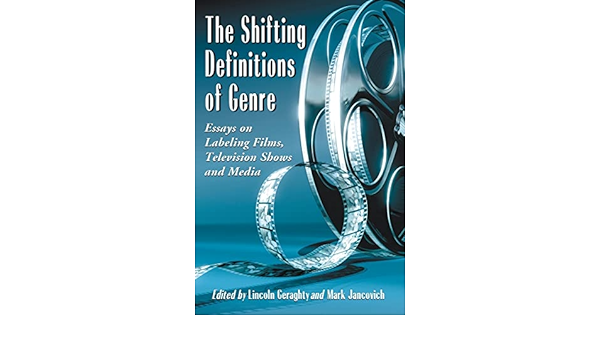
Mystery and Intrigue
“The X-Files” excelled at building suspense and keeping audiences on the edge of their seats. It masterfully combined elements of horror, science fiction and mystery to create a unique and immersive viewing experience.
“The X-Files” excelled at building suspense and keeping audiences on the edge of their seats. It masterfully combined elements of horror, science fiction and mystery to create a unique and immersive viewing experience.
One of the show’s signature strengths was its ability to craft intricate, multi-episode story arcs that left viewers yearning for answers. Each episode was a piece of a larger puzzle and the tantalizing hints of a vast conspiracy lurking beneath the surface added layers of intrigue. As viewers delved deeper into the mysteries of government cover-ups, extraterrestrial encounters and unexplained phenomena, they became engrossed in a narrative that blended the supernatural with the deeply enigmatic.
Furthermore, “The X-Files” boasted a memorable duo at its core: FBI Special Agents Fox Mulder and Dana Scully. Mulder’s unwavering belief in the paranormal and Scully’s scientific skepticism created a dynamic partnership that allowed viewers to explore each case from contrasting viewpoints. This duality of perspectives not only added complexity to the characters but also mirrored the audience’s own engagement with the unexplained.
The show’s ability to tap into universal fears and questions about the unknown further heightened its appeal. Whether it was encountering terrifying creatures in dark forests, uncovering government conspiracies or delving into the psychological horrors of the human mind, “The X-Files” never shied away from exploring the depths of human curiosity and fear.
In doing so, it became more than just a series; it became a cultural phenomenon that invited viewers to contemplate the boundaries of science and the mysteries of the universe. It challenged our understanding of reality and invited us to ponder the unexplained, making it an enduring classic that continues to captivate and intrigue audiences, sparking discussions and investigations into the unknown to this day.
Additionally, you can find further information on this topic by visiting this page: The 100 Best Sci-Fi TV Shows of All Time – Paste Magazine
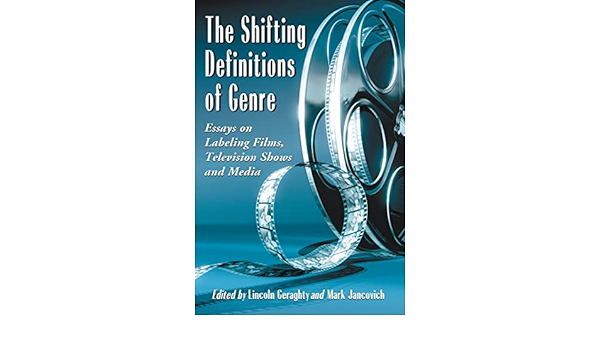
Complex Characters
Mulder and Scully’s dynamic was at the heart of the show. Mulder’s belief in the paranormal and Scully’s skepticism created a perfect balance, allowing viewers to explore the unknown through their distinct perspectives.
The dynamic between Mulder and Scully in “The X-Files” was nothing short of legendary and it served as the linchpin of the series’ enduring appeal. This unique partnership between a believer in the paranormal and a skeptic brought depth and richness to the show, allowing viewers to embark on a thrilling journey into the unknown while examining the complexities of belief and skepticism. Here’s why Mulder and Scully’s dynamic was at the heart of the show:
Perfect Balance: Mulder’s unwavering belief in the paranormal and extraterrestrial phenomena contrasted beautifully with Scully’s scientific skepticism and reliance on evidence. This balance between belief and skepticism created a dynamic tension that kept viewers engaged and intrigued throughout the series. It allowed the show to explore a wide range of supernatural and unexplained phenomena from multiple angles.
Complex Character Development: Mulder and Scully’s dynamic also extended to their individual character arcs. Over the course of the series, Mulder’s quest to uncover the truth often pushed the boundaries of his beliefs, while Scully’s skepticism occasionally wavered in the face of compelling evidence. This character development added depth and complexity to both characters, making them more relatable and human.
Exploring the Unknown: “The X-Files” was known for its exploration of paranormal and mysterious phenomena. Mulder’s passionate pursuit of the unexplained and Scully’s scientific rigor allowed viewers to engage with the supernatural in a thought-provoking manner. Their contrasting viewpoints encouraged viewers to question the unknown and consider multiple perspectives.
Reflecting Real-Life Debates: Mulder and Scully’s dynamic mirrored real-life debates about the existence of extraterrestrial life, government conspiracies and the paranormal. Their partnership served as a microcosm of the larger cultural conversations surrounding these topics, making the show relevant and relatable to its audience.
Respect and Trust: Despite their differing beliefs, Mulder and Scully had immense respect and trust in each other. This mutual trust was a central pillar of their partnership, highlighting the importance of collaboration, even in the face of disagreement. Their bond became a source of inspiration for viewers, emphasizing the value of open-mindedness and teamwork.
Emotional Resonance: Mulder and Scully’s relationship extended beyond their professional partnership. The show skillfully wove moments of vulnerability, trust and emotional connection into their interactions. This emotional resonance allowed viewers to become deeply invested in their characters and their evolving relationship.
Legacy of Mulder and Scully: Mulder and Scully’s dynamic left an enduring legacy in the world of television. Their partnership has been celebrated and analyzed in various academic and cultural contexts, cementing their place in pop culture history. They remain iconic characters who continue to influence storytelling and character dynamics in subsequent TV series.
Enduring Fan Base: “The X-Files” boasts a dedicated and passionate fan base that continues to celebrate Mulder and Scully’s partnership. Their dynamic has inspired fan fiction, conventions and discussions among fans, demonstrating the lasting impact of their characters on viewers.
In summary, Mulder and Scully’s dynamic in “The X-Files” was a masterful fusion of belief and skepticism, scientific rigor and unbridled passion. It allowed the show to explore the mysteries of the unknown while reflecting real-world debates and encouraging viewers to think critically. Their partnership, characterized by trust, respect and emotional depth, remains a testament to the enduring power of well-crafted character dynamics in television storytelling.
To expand your knowledge on this subject, make sure to read on at this location: Best Cult TV Shows of All Time: 33 Cult Classics Everyone Should …

Legacy and Impact
“The X-Files” not only cultivated a dedicated fan base but also influenced countless other television series and films in the paranormal and conspiracy genres. Its impact on popular culture is still felt today.
“The X-Files” stands as a groundbreaking series that not only garnered a passionate and dedicated fan base but also left an indelible mark on the landscape of television and film, especially within the paranormal and conspiracy genres. Its far-reaching influence continues to reverberate through popular culture, shaping the way we approach mysteries, the unexplained and the supernatural. Here’s a more in-depth look at the lasting impact of “The X-Files”:
Trailblazing the Paranormal Genre: “The X-Files” was a trailblazer in the realm of paranormal and supernatural storytelling on television. Its unique blend of science fiction, horror and investigative drama introduced a new narrative approach, paving the way for a wave of similar shows and films.
Complex Characters: The dynamic between FBI agents Fox Mulder and Dana Scully, portrayed by David Duchovny and Gillian Anderson, became emblematic of the show’s success. Their nuanced characters, marked by Mulder’s belief in the paranormal and Scully’s skepticism, showcased the potential for multifaceted character development in genre television.
Serialized Storytelling: “The X-Files” popularized the concept of serialized storytelling in episodic television. Its overarching mythology, interspersed with standalone “monster of the week” episodes, demonstrated the power of long-form storytelling in engaging and retaining viewers.
Cultural References and Memes: The show introduced numerous catchphrases, memorable monsters and cryptic plot elements that have become part of the cultural lexicon. Phrases like “The truth is out there” and references to the Cigarette Smoking Man are instantly recognizable and they continue to appear in memes and references in popular culture.
Inspiration for Creators: “The X-Files” inspired a generation of writers, directors and creators. Many have cited the show as a major influence on their own work, leading to the proliferation of similar series and films exploring paranormal phenomena, government conspiracies and extraterrestrial life.
Impact on Horror and Sci-Fi: The show’s fusion of horror and science fiction elements set a precedent for future genre-blending projects. It demonstrated that supernatural and science fiction themes could coexist seamlessly, influencing the horror and sci-fi genres in both television and film.
Exploration of Trust and Paranoia: “The X-Files” delved into themes of trust, paranoia and government secrecy. These themes resonate with audiences in a world where skepticism of authority and the quest for hidden truths continue to be relevant.
Influence on Investigative Journalism: The show’s portrayal of investigative journalism, conspiracy theories and the pursuit of truth influenced real-world journalists and writers who cover similar topics. It blurred the lines between fiction and reality, contributing to discussions of government transparency and accountability.
Revival and Cultural Continuation: “The X-Files” enjoyed a revival in the 2010s, demonstrating its enduring appeal. It also contributed to the resurgence of interest in 90s nostalgia, with viewers both new and old revisiting the series.
Legacy of Fandom: The dedicated and passionate fan base of “The X-Files” has kept the show alive through fan conventions, fan fiction and online communities. The ongoing enthusiasm and discussions among fans continue to reinforce the show’s cultural significance.
In summary, “The X-Files” was not only a groundbreaking television series but also a cultural phenomenon that redefined the paranormal and conspiracy genres. Its legacy is woven into the fabric of popular culture, inspiring subsequent generations of creators and continuing to captivate audiences who are drawn to the mysteries of the unknown, the allure of government secrets and the enduring search for the truth.
Looking for more insights? You’ll find them right here in our extended coverage: I love great stand alone episodes from scifi/fantasy shows. Can …

“Buffy the Vampire Slayer”: Empowerment Through Fantasy
“Buffy the Vampire Slayer,” created by Joss Whedon, redefined the fantasy genre by blending supernatural elements with powerful themes of empowerment, feminism and the struggles of adolescence. The show followed Buffy Summers, a young woman chosen to battle vampires and other supernatural creatures.
“Buffy the Vampire Slayer,” a creation of the visionary Joss Whedon, emerged as a groundbreaking series that left an indelible mark on the landscape of television. It redefined the fantasy genre by masterfully intertwining supernatural elements with profound themes of empowerment, feminism and the tumultuous journey through adolescence. At the heart of the show was Buffy Summers, a remarkable character who embodied strength, resilience and the complexities of growing up in a world filled with vampires and other supernatural adversaries.
One of the most striking aspects of “Buffy the Vampire Slayer” was its subversion of traditional gender roles and its championing of feminism. Buffy was not your typical damsel in distress; she was the Chosen One, a young woman with unparalleled strength and courage who took on the responsibility of battling the forces of darkness. Through her character, the show challenged preconceived notions about gender and power, paving the way for a new generation of strong and empowered female characters in television and popular culture.
Buffy’s journey was more than just a physical battle against vampires; it was a deeply emotional and psychological exploration of the struggles of adolescence and young adulthood. Her experiences mirrored those of viewers navigating the complexities of high school, friendship, love and identity. The show fearlessly delved into issues like bullying, peer pressure, self-discovery and the burden of responsibility, providing a relatable and empathetic portrayal of the challenges faced by teenagers.
Moreover, “Buffy the Vampire Slayer” excelled in its ability to weave intricate and morally complex narratives. It blurred the lines between good and evil, challenging viewers to grapple with the shades of gray that exist in the real world. The characters, including the enigmatic vampire Spike and the tormented Angel, exemplified the show’s commitment to exploring the duality of human nature and the potential for redemption.
The show also embraced the power of allegory and metaphor, using supernatural creatures and scenarios to reflect real-world issues and dilemmas. Vampires, demons and supernatural forces served as allegories for the struggles that people face in their daily lives, whether it was addiction, societal expectations or the battle against personal demons.
Furthermore, “Buffy the Vampire Slayer” fostered a sense of community among its dedicated fan base. It was a show that encouraged thoughtful discussion and analysis, sparking conversations about its rich symbolism, complex characters and social relevance. The passionate fan community that grew around the show continues to thrive today, demonstrating the enduring impact of its storytelling.
In retrospect, “Buffy the Vampire Slayer” stands as a testament to the power of television to transcend genres and inspire change. It redefined what a fantasy series could be, offering viewers not only supernatural thrills but also thought-provoking themes, relatable characters and a resounding message of empowerment. Buffy Summers, with her unwavering determination and indomitable spirit, remains an enduring icon of strength and resilience, serving as an inspiration for all who seek to face their own demons and overcome the challenges of the world.
Don’t stop here; you can continue your exploration by following this link for more details: Is Buffy the Vampire Slayer worth watching? : r/television
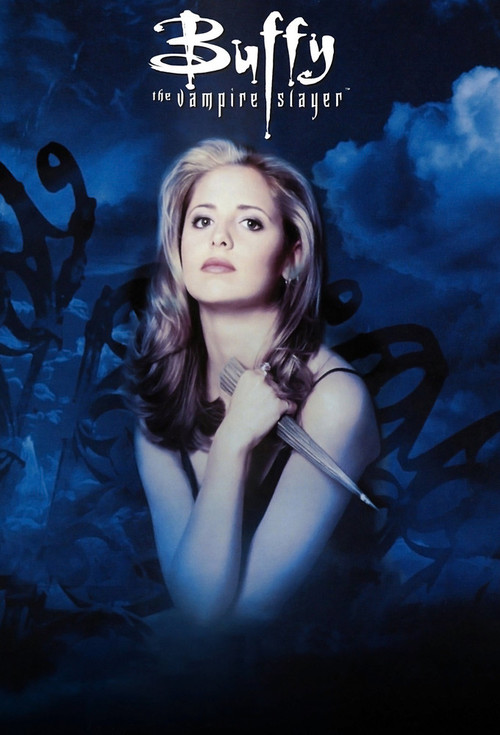
Strong Female Protagonist
Buffy’s character shattered traditional gender roles, portraying a strong, capable and relatable female hero. Her journey from reluctant slayer to fearless leader inspired viewers of all genders.
Buffy Summers, the titular character of “Buffy the Vampire Slayer,” stands as a trailblazing figure in the realm of television, not just for her supernatural battles but for the profound impact she had on gender roles and representation. Her character defied conventions and broke new ground in several significant ways:
Strength and Resilience: Buffy redefined what it meant to be a female hero. In a genre often dominated by male protagonists, she showcased physical and emotional strength that knew no bounds. Her battles against vampires, demons and the forces of evil served as metaphors for real-life challenges, resonating with viewers who admired her unwavering determination.
Complexity and Vulnerability: While Buffy possessed incredible physical abilities, the show never shied away from depicting her vulnerabilities and insecurities. She grappled with the weight of her responsibilities as the Slayer, the complexities of love and relationships and the fear of failure. This multifaceted portrayal made her character all the more relatable.
Strong Relationships: Buffy’s friendships and relationships were central to her character. Her tight-knit group of friends, known as the Scooby Gang, showcased the importance of collaboration and emotional support. Buffy’s bonds with her friends, mentors and romantic partners reinforced the idea that strength comes not just from within but also from the connections we build.
Female Empowerment: Buffy became a symbol of female empowerment. Her journey from a reluctant slayer to a fearless leader inspired countless viewers, especially young women, to embrace their own strength and resilience. She showed that it was possible to be both powerful and compassionate, challenging the notion that these qualities were mutually exclusive.
Impact on Future Characters: Buffy’s legacy extends beyond her own series. Her character paved the way for a new generation of strong, multidimensional female heroes in television and film. Characters like Katniss Everdeen from “The Hunger Games” and Rey from “Star Wars” drew inspiration from Buffy’s archetype.
Feminism and Social Commentary: “Buffy the Vampire Slayer” didn’t shy away from addressing important social issues and feminist themes. The show used supernatural elements as allegories to tackle real-world challenges such as gender inequality, consent and the abuse of power. It encouraged critical thinking and meaningful conversations among viewers.
Buffy Summers remains an enduring symbol of strength, resilience and empowerment and her impact on television and popular culture continues to be celebrated. Her character challenged and redefined traditional gender roles, serving as a beacon of inspiration for viewers of all genders and reminding us that true heroism knows no gender boundaries.
If you’d like to dive deeper into this subject, there’s more to discover on this page: Best Sci-Fi Shows on Hulu Right Now (August 2023)
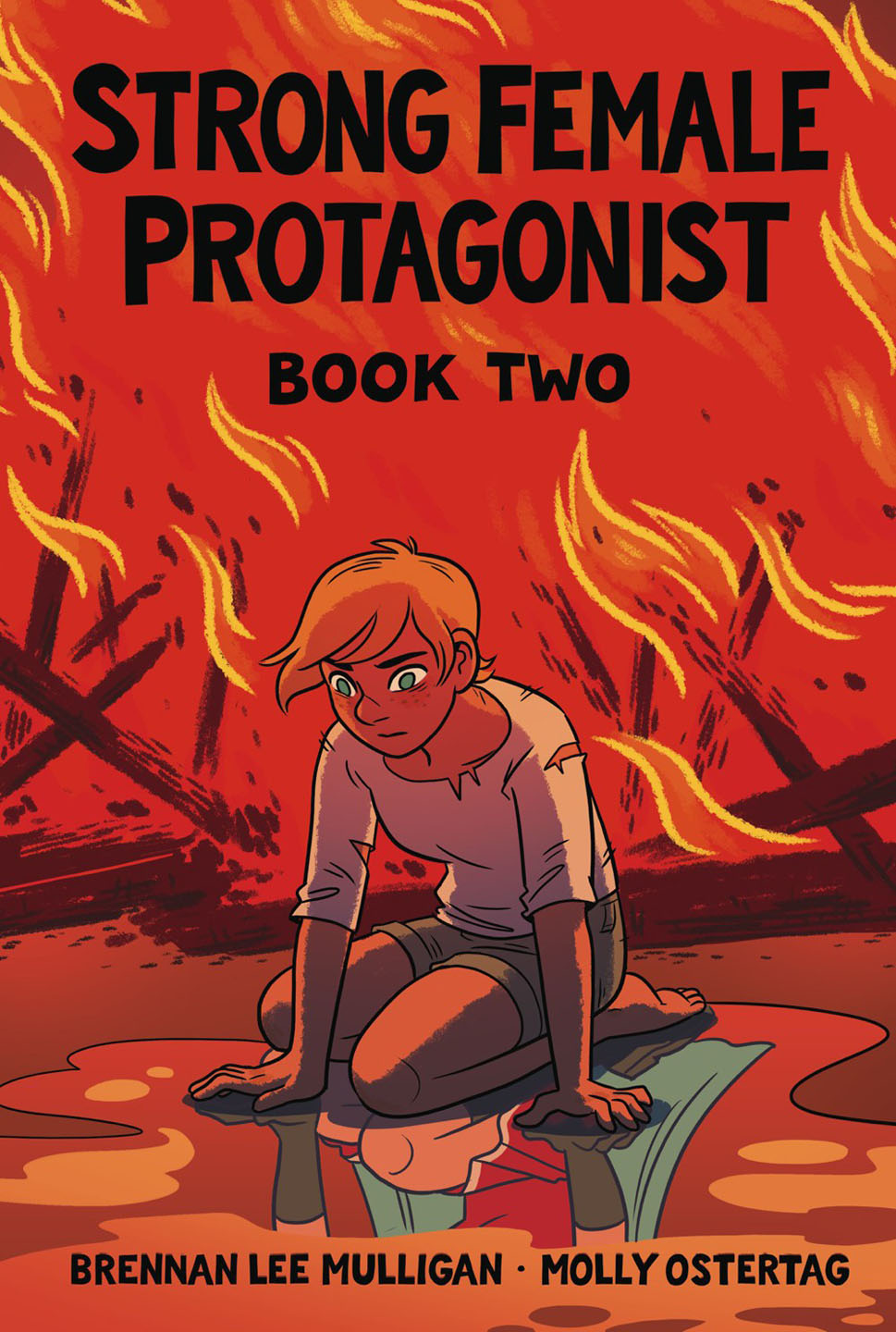
Metaphorical Storytelling
“Buffy” used monsters and supernatural threats as metaphors for the challenges of adolescence and young adulthood. It addressed issues like identity, friendship, love and the burden of responsibility in a way that resonated deeply with its audience.
“Buffy” used monsters and supernatural threats as metaphors for the challenges of adolescence and young adulthood. It addressed issues like identity, friendship, love and the burden of responsibility in a way that resonated deeply with its audience.
One of the show’s most striking aspects was its ability to explore the complexities of growing up through the lens of the supernatural. By pitting Buffy and her friends against vampires, demons and otherworldly creatures, the series turned the metaphorical demons of adolescence into literal ones. This clever narrative device allowed viewers to engage with these universal themes in a fantastical but relatable context.
Identity was a central theme of “Buffy.” As the Slayer, Buffy grappled with the weight of her destiny and the pressure to conform to the expectations of others. This mirrored the struggles that many young adults face as they navigate the transition from adolescence to adulthood, trying to discover who they are and where they fit in the world. Buffy’s journey of self-discovery was both empowering and relatable, serving as a source of inspiration for viewers on their own paths of self-realization.
Friendship was another cornerstone of the series. Buffy and her tight-knit group of friends, often referred to as the “Scooby Gang,” faced not only supernatural threats but also the everyday challenges of maintaining friendships. The show emphasized the importance of loyalty, trust and mutual support, portraying the bonds of friendship as essential tools in overcoming adversity. This resonated with viewers, reminding them of the enduring value of true friends in their own lives.
Love, in all its forms, was a recurring theme in “Buffy.” From the complexities of first crushes to the challenges of maintaining romantic relationships, the show explored the intricacies of love in a way that felt authentic. It depicted the joys and heartaches of love, reinforcing the idea that love is a transformative force that shapes our lives.
The burden of responsibility was perhaps the most profound theme of the series. Buffy was the Chosen One, tasked with protecting the world from supernatural threats. This burden paralleled the sense of responsibility that many young adults feel as they transition into independence and face the consequences of their choices. Buffy’s journey underscored the idea that with great power comes great responsibility, a lesson that resonated deeply with viewers as they confronted their own life choices.
In essence, “Buffy” was more than a supernatural drama; it was a mirror reflecting the challenges and triumphs of adolescence and young adulthood. It allowed viewers to explore their own experiences through the fantastical lens of the show, finding solace and inspiration in the trials and tribulations of Buffy and her friends. “Buffy” not only entertained but also served as a source of guidance and comfort, reminding us all that we have the strength to face our own demons, both real and metaphorical, on the journey of growing up.
Explore this link for a more extensive examination of the topic: What tv shows closely resemble a tabletop rpg? : r/rpg

Supporting Characters
The show’s diverse and well-developed supporting characters, including Willow, Xander and Giles, contributed to its richness and depth. They each underwent their own transformative journeys.
“Buffy the Vampire Slayer” was a series that not only boasted a charismatic leading character in Buffy herself but also a captivating ensemble cast that breathed life into the fictional town of Sunnydale. The supporting characters, including Willow, Xander and Giles, were instrumental in crafting a narrative tapestry that was both rich and deeply resonant. Here’s how these characters added layers of complexity to the show:
1. Willow: The Evolution of Power: Willow Rosenberg embarked on a transformative journey that took her from being the shy, bookish girl to a powerful witch. Her progression from self-doubt to self-assuredness mirrored the broader theme of empowerment that ran through the series. Willow’s exploration of her magical abilities was not just about spells and incantations but also about self-discovery, the allure of power and the consequences it can bring.
2. Xander: The Heart of Humanity: Xander Harris provided a relatable, human perspective in a world of supernatural beings. His wit, humor and resilience were his greatest assets. Despite not having any supernatural abilities, he displayed an unwavering commitment to his friends and a willingness to face danger head-on. Xander’s journey was one of self-acceptance and growth, demonstrating that heroism comes in various forms.
3. Giles: The Wise Mentor: Rupert Giles, the librarian and Buffy’s mentor, was the epitome of wisdom and experience. His role extended beyond that of a mentor; he was a father figure to Buffy and the Scooby Gang. Giles’s character was a constant source of guidance and stability amidst the chaos of vampire slaying. His own backstory and struggle with his past as a “Ripper” added depth to his character, showcasing the complexities of a life dedicated to battling evil.
4. Interconnected Relationships: What made these supporting characters truly shine was the depth of their interconnected relationships. The genuine friendship between Willow, Xander and Buffy, as well as the mentor-student dynamic between Giles and Buffy, added layers of authenticity to the show. The writers masterfully explored the complexities of friendships, love and loyalty, making them central to the narrative.
5. Growth and Transformation: Just like Buffy, these characters underwent significant growth and transformation throughout the series. Their individual arcs mirrored the overarching themes of the show, which revolved around the challenges of transitioning from adolescence to adulthood, facing personal demons (both literal and metaphorical) and finding one’s place in the world.
6. Diversity and Representation: “Buffy the Vampire Slayer” was also notable for its diverse cast, addressing issues of identity, sexuality and diversity through its characters. Willow’s journey as a lesbian character, for example, was groundbreaking and paved the way for increased LGBTQ+ representation in television.
In essence, the supporting characters in “Buffy the Vampire Slayer” were not mere sidekicks; they were fully realized individuals with their own trials and tribulations. Their journeys of growth, transformation and self-discovery resonated with viewers on a profound level, making them integral to the show’s enduring appeal. Together with Buffy, they formed a tightly-knit group that navigated the challenges of supernatural threats, adolescence and the complexities of life, leaving an indelible mark on the landscape of television.
Explore this link for a more extensive examination of the topic: The 90s was the best time for genre television! : r/scifi

The 1990s witnessed a renaissance of genre television that extended beyond “The X-Files” and “Buffy.” Shows like “Star Trek
The Next Generation,” “The Outer Limits,” “The Twilight Zone” revival and “Stargate SG-1” also contributed to the genre’s resurgence.
The revival of classic science fiction series like “The Next Generation,” “The Outer Limits,” “The Twilight Zone,” and the introduction of “Stargate SG-1” marked a remarkable resurgence of the genre, breathing new life into the imaginations of viewers and demonstrating the enduring appeal of thought-provoking storytelling.
“The Next Generation,” set in the 24th century and featuring the intrepid crew of the USS Enterprise, continued the legacy of the original “Star Trek” series while introducing a new generation of characters and ideas. It explored complex moral and philosophical dilemmas, such as the nature of humanity, ethics in technology and the pursuit of peaceful exploration in a volatile galaxy. The show’s optimism about the future of humanity and its commitment to diversity and inclusivity resonated with audiences, proving that science fiction could serve as a vehicle for profound social commentary.
“The Outer Limits” embraced the weird, the mysterious and the unexplained, offering a thrilling anthology of science fiction and horror stories. Its episodes often ventured into the realm of the bizarre and the unsettling, challenging viewers to question their understanding of reality and the unknown. The series reminded us that science fiction could be a realm where the boundaries of imagination and storytelling knew no limits.
“The Twilight Zone” revival, guided by the vision of creator Rod Serling, continued to explore the surreal and the thought-provoking. It presented a series of standalone episodes, each a self-contained parable that tackled issues of morality, justice and the human condition. The revival’s ability to draw viewers into enigmatic and often unsettling scenarios emphasized the power of speculative fiction to hold a mirror to society and make us reflect on our own lives.
“Stargate SG-1” expanded upon the mythology established in the 1994 film “Stargate” and launched a television franchise that spanned multiple series and spin-offs. The show blended elements of military science fiction with ancient mythology, interstellar exploration and extraterrestrial diplomacy. Its enduring popularity showcased the genre’s ability to create rich and interconnected fictional universes that captivated audiences for years.
Collectively, these series exemplified the resurgence of science fiction in the 1990s, proving that the genre could remain both relevant and innovative. They demonstrated that science fiction was not confined to spaceships and aliens but was a versatile medium for exploring the human experience, moral dilemmas and the limitless possibilities of the imagination. As they continued to warm the hearts of viewers, they reinforced the idea that science fiction could inspire, challenge and entertain, all while inviting us to ponder the mysteries of the cosmos and the depths of our own humanity.
Looking for more insights? You’ll find them right here in our extended coverage: What TV shows started this new Renaissance/Golden age of …

Innovation and Diversity
These series showcased innovative storytelling and diverse perspectives, paving the way for the genre’s continued evolution in the 21st century.
These series were trailblazers in the world of television, setting a new standard for innovative storytelling and embracing diverse perspectives. They didn’t just entertain; they challenged the status quo, sparking a revolution in the industry that continues to shape the landscape of television in the 21st century.
In an era when formulaic scripts and stereotypical characters were the norm, these shows dared to be different. They introduced complex narratives that delved into the intricacies of human relationships, identity and societal issues. Viewers were no longer passive spectators but active participants in the unfolding drama, connecting on a deeper level with the characters and their struggles.
Moreover, these series championed diversity long before it became a buzzword in the entertainment industry. They recognized the importance of representing a wide range of voices and experiences, breaking away from the homogeneity that had dominated television for decades. Characters from various backgrounds, ethnicities and walks of life were given a platform to tell their stories, enriching the narrative tapestry.
This commitment to innovative storytelling and diverse perspectives had a profound impact on the future of television. It inspired a new generation of writers, directors and producers to think outside the box and create content that resonated with an increasingly diverse and discerning audience. As a result, we’ve seen a flourishing of groundbreaking series in the 21st century that owe their success to the path paved by these trailblazing shows.
From intricate character development to thought-provoking social commentary, the legacy of these series endures in the DNA of modern television. They taught us that storytelling is a powerful tool for change, a means to explore the human experience in all its complexity. They reminded us that when we embrace diverse perspectives and push the boundaries of creativity, we unlock the true potential of the medium.
As we celebrate the impact of these shows, we acknowledge their lasting contributions to the evolution of television. They continue to inspire us to seek out fresh narratives, to champion diverse voices and to challenge conventional storytelling norms. In the 21st century and beyond, they remain guiding lights, reminding us that television has the power to not only reflect society but also shape it.
Looking for more insights? You’ll find them right here in our extended coverage: Best Sci-Fi Shows on Hulu Right Now (August 2023)

Fan Communities
The fervent fan communities that emerged around these shows played a crucial role in their lasting impact. Conventions, fan fiction and online forums allowed viewers to engage deeply with the series and share their love for them.
The fervent fan communities that blossomed around beloved ’90s sitcoms played an indispensable role in cementing their enduring influence. These shows weren’t just fleeting entertainment; they became cultural touchstones that ignited a passionate following. It was within these dedicated communities that the magic of these series truly came alive.
Conventions dedicated to these ’90s sitcoms became epicenters of shared enthusiasm and nostalgia. Fans from all walks of life gathered to celebrate their favorite shows, often dressing up as beloved characters and participating in lively panel discussions. These events provided a space for fans to bond, forging connections based on their mutual love for the series and its characters.
Fan fiction, a creative outlet for devoted enthusiasts, allowed fans to extend the stories of their favorite characters in imaginative and often unexpected ways. These fan-written narratives breathed new life into the shows, exploring uncharted territories and offering fresh perspectives on beloved storylines. It was a testament to the deep emotional investment viewers had in these series.
Online forums and discussion boards served as virtual hubs where fans could congregate to dissect episodes, share trivia and engage in spirited debates. These digital communities transcended geographical boundaries, uniting fans from around the world in a shared dialogue about the shows they held dear. Here, friendships were forged, theories were developed and a sense of belonging blossomed.
What made these fan communities truly special was their ability to keep the spirit of the ’90s sitcoms alive long after they had left the airwaves. Through conventions, fan fiction and online forums, fans transformed mere viewership into an active and ongoing relationship with the shows. It was a testament to the enduring power of storytelling and the profound impact these sitcoms had on the lives of their fans.
The legacy of these fan communities endures, reminding us that the connection between fans and the shows they love is a bond that transcends time and distance. As these sitcoms continue to warm hearts, the fervor of their fan communities serves as a testament to the timeless appeal of ’90s television and the enduring love we have for the characters and stories that touched our lives.
You can also read more about this here: The 30 Best TV Shows on Hulu Right Now: September 2023
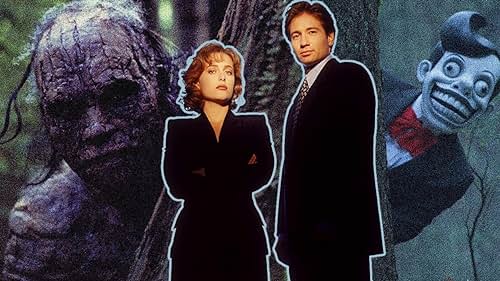
“The X-Files” and “Buffy the Vampire Slayer” remain not just TV shows but cultural touchstones that continue to inspire and entertain audiences today. Their enduring appeal, coupled with the resurgence of genre television in the 1990s, solidified the era as a golden age for science fiction and fantasy storytelling. As we revisit these gems, we’re reminded of the profound impact they had on the genre and their ability to transcend time and continue to captivate new generations of viewers.
“The X-Files” and “Buffy the Vampire Slayer” are not just television shows; they are iconic cultural touchstones that have left an indelible mark on the world of entertainment. Decades after their initial airings, these series continue to inspire, entertain and captivate audiences around the world. Their enduring appeal speaks to the timeless quality of their storytelling and the deep resonance of the themes they explore.
These two shows, in particular, played a pivotal role in solidifying the 1990s as a golden age for science fiction and fantasy storytelling on television. They arrived at a time when viewers were hungry for fresh and daring narratives and they delivered in spades. “The X-Files” invited us to delve into the mysteries of the unknown, exploring the realms of the supernatural, extraterrestrial and paranormal. Its mix of procedural investigation and overarching mythology set a precedent for serialized storytelling that remains influential to this day.
On the other hand, “Buffy the Vampire Slayer” reinvented the teen drama genre by infusing it with supernatural elements and empowering its young female protagonist to be the hero of her own story. It tackled themes of identity, empowerment and the struggle between good and evil with a wit and intelligence that resonated with audiences of all ages. Buffy and her Scooby Gang became beloved figures and the show’s impact on genre television, particularly in the realm of urban fantasy, cannot be overstated.
These shows were not only trailblazers in their respective genres but also masters of character development. They gave us richly layered and relatable characters who grappled with complex emotions and moral dilemmas. As viewers, we became deeply invested in their journeys, seeing reflections of our own struggles and triumphs in their stories.
Moreover, the enduring appeal of “The X-Files” and “Buffy the Vampire Slayer” has not waned with time. New generations of viewers discover these shows, drawn in by their compelling narratives, well-drawn characters and thought-provoking themes. The universality of their storytelling ensures that they continue to resonate with people from all walks of life.
As we revisit these gems, we are reminded of the profound impact they had on the genre and the television landscape as a whole. They challenged conventions, pushed boundaries and paved the way for a new era of storytelling. They demonstrated that genre television could be both intelligent and entertaining and they continue to inspire creators and viewers alike to this day. In essence, “The X-Files” and “Buffy the Vampire Slayer” are not just shows; they are timeless testaments to the power of storytelling to captivate the imagination and touch the human soul.
If you’d like to dive deeper into this subject, there’s more to discover on this page: Is it weird that I find the early seasons of the X-files more realistic …
More links
To expand your knowledge on this subject, make sure to read on at this location: Best Sci-Fi Shows on Hulu Right Now (August 2023)
